Salvatore Giuliano
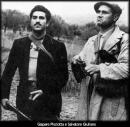
La canzone musicalmente è splendida, cantata in maniera professionale come pochi sanno fare. L'ho conosciuta per caso, cercando qualcosa che riguardasse la figura di Salvatore Giuliano. Devo ammettere che tra i tanti libri, articoli, 3 film, articoli e inchieste, trasmissioni televisive, questi cinque minuti e mezzo rappresentano qualcosa di impressionante. E se fosse vero? La canzone non accenna al fatto che ha inchiodato il giovane di Montelepre al rango di freddo assassino che ha sparato su inermi contadini compiendo una strage disumana: undici morti, decine di feriti. L'autore del testo si è forse distratto? Credo di no, anzi! non parla di Portella semplicemente perchè si è convinto che Giuliano non c'entri nulla. E come la mettiamo col processo di Viterbo? Turiddu e la sua banda sono stati condannati in tutti e tre i gradi di giudizio. Capitolo chiuso. Eppure su quella vicenda fu imposto... (continuer)
siciliano doc. 23/4/2010 - 23:39
Οι γειτονιές του κόσμου
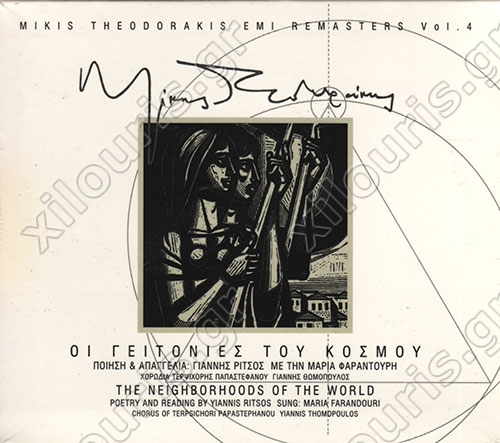
Oi geitoniés tou kósmou
Στίχοι: Γιάννης Ρίτσος, 1957
Μουσική: Μίκης Θεοδωράκης, 1978, Αθήνα και Omsk Σιβηρίας
Πρώτη εκτέλεση: Χορωδία της Τερψιχόρης Παπαστεφάνου, Μαρία Φαραντούρη, Γιάννης Θωμόπουλος
Testi di Yannis Ritsos, 1957
Musica di Mikis Theodorakis, 1978 , Atene e Omsk di Siberia
Prima esecuzione: Coro di Tersicore Papastefanou, Maria Farandouri, Yannis Thomopoulos
L'amplissimo oratorio popolare in versi "I Quartieri del mondo" di Yannis Ritsos fu pubblicato da Kedros nel 1957. Circa vent'anni dopo, continuando una lunghissima collaborazione, Theodorakis ne musicò alcuni frammenti, che vennero eseguiti nello stesso anno ad Atene e a Omsk, in Siberia. Come amava spesso fare, forte della sua esperienza di attore e della sua bella voce impostata, all' esecuzione partecipò anche il poeta, recitando tre passi.
La rassegna che proponiamo non è ancora completa, per cui la... (continuer)
Στίχοι: Γιάννης Ρίτσος, 1957
Μουσική: Μίκης Θεοδωράκης, 1978, Αθήνα και Omsk Σιβηρίας
Πρώτη εκτέλεση: Χορωδία της Τερψιχόρης Παπαστεφάνου, Μαρία Φαραντούρη, Γιάννης Θωμόπουλος
Testi di Yannis Ritsos, 1957
Musica di Mikis Theodorakis, 1978 , Atene e Omsk di Siberia
Prima esecuzione: Coro di Tersicore Papastefanou, Maria Farandouri, Yannis Thomopoulos
L'amplissimo oratorio popolare in versi "I Quartieri del mondo" di Yannis Ritsos fu pubblicato da Kedros nel 1957. Circa vent'anni dopo, continuando una lunghissima collaborazione, Theodorakis ne musicò alcuni frammenti, che vennero eseguiti nello stesso anno ad Atene e a Omsk, in Siberia. Come amava spesso fare, forte della sua esperienza di attore e della sua bella voce impostata, all' esecuzione partecipò anche il poeta, recitando tre passi.
La rassegna che proponiamo non è ancora completa, per cui la... (continuer)
(continuer)
envoyé par Gian Piero Testa 23/4/2010 - 18:10
Al presidente de Chile Salvador Allende

AL PRESIDENTE DEL CILE SALVADOR ALLENDE
(continuer)
(continuer)
envoyé par Maria Cristina 23/4/2010 - 17:39
¿Cómo voy a olvidarme?

COME POSSO DIMENTICARE?
(continuer)
(continuer)
envoyé par Maria Cristina 23/4/2010 - 17:32
Within You Without You

E' davvero una canzone stupenda che ti fa trovare veramente la pace interiore... Grande George
daniele 23/4/2010 - 15:41
Pontelandolfo

tengo a precisare solo una cosa sulla questione: una cosa di carattere geografico e storico.
1) la banda del matese non ha niente a che fare con pontelandolfo. gli internazionalisti arrivarono a san lupo (paese che dista circa 10 km) dove vi restarono qualche mese prima di essere "cantati" e costretti alla fuga verso i monti del matese. dopo tre giorni arrivarono a letino e poi a gallo matese dove si realizzo lo "strano connubio" tra internazionalisti, sfruttati, ed oppressi dal potere "feudale" (politico e religioso). vabbe poi i fatti sono noti ancora oggi nella memoria della gente in quanto chi vive in questi luoghi da sempre ne fa motivo di orgoglio ed in parte di rivalsa nei compronti dei moderni feudatari.
2) i fatti di pontelandolfo avvennero qualche anno prima e sono quelli di cui fa riferimento la canzone "a campana sona". le rivolte contadine e la repressione successiva avvennero... (continuer)
1) la banda del matese non ha niente a che fare con pontelandolfo. gli internazionalisti arrivarono a san lupo (paese che dista circa 10 km) dove vi restarono qualche mese prima di essere "cantati" e costretti alla fuga verso i monti del matese. dopo tre giorni arrivarono a letino e poi a gallo matese dove si realizzo lo "strano connubio" tra internazionalisti, sfruttati, ed oppressi dal potere "feudale" (politico e religioso). vabbe poi i fatti sono noti ancora oggi nella memoria della gente in quanto chi vive in questi luoghi da sempre ne fa motivo di orgoglio ed in parte di rivalsa nei compronti dei moderni feudatari.
2) i fatti di pontelandolfo avvennero qualche anno prima e sono quelli di cui fa riferimento la canzone "a campana sona". le rivolte contadine e la repressione successiva avvennero... (continuer)
enzo l'arianese 23/4/2010 - 15:23
Hawks And Eagles Fly Like Doves

"On the 21st March, 1985 a funeral procession, moving between the towns of Lange and Uitenhaage in South Africa, was stopped by armoured personnel carriers. Gun shots rang out and a 16 year old boy on a bicycle at the front of the procession fell dead. Within seconds eighteen more were killed. A later investigation into the massacre showed that many had been shot in the back."
(Notes by Ian Walker in the album "Flying High")
(Notes by Ian Walker in the album "Flying High")
Alessandro 23/4/2010 - 13:06
Island
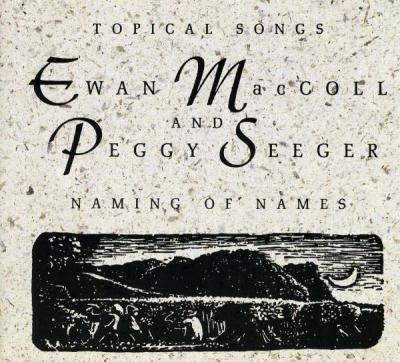
[1990]
nell'album "Naming of Names" del 1990 e s'intitola semplicemente "Island".
Incisa da Christy Moore nell'album “Smoke and Strong Whiskey” del 1991 (con il titolo Green Island)
Ispirata alla irish rebel song ottocentesca scritta da Robert Dwyer Joyce The wind that Shakes the Barley
Testo trovato su MySongBook
nell'album "Naming of Names" del 1990 e s'intitola semplicemente "Island".
Incisa da Christy Moore nell'album “Smoke and Strong Whiskey” del 1991 (con il titolo Green Island)
Ispirata alla irish rebel song ottocentesca scritta da Robert Dwyer Joyce The wind that Shakes the Barley
Testo trovato su MySongBook
The island lies like a leaf upon the sea
(continuer)
(continuer)
envoyé par Alessandro 23/4/2010 - 12:51
The Glesca Eskimos
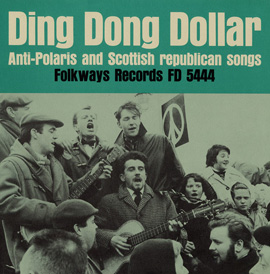
[1962]
Album “Ding Dong Dollar: Anti-Polaris and Scottish Republican Songs”, Folkways Records.
Tune: Marching Through Georgia
Written by T. S. Law, Morris Blythman and Jim McLean.
La USS Proteus alla fonda nella baia scozzese di Holy Loch nel 1961.
Nella primavera del 1961 a Holy Loch gli attivisti della Scottish Campaign for Nuclear Disarmament provarono a fermare le navi americane cariche di missili nucleari… Ci provarono pacificamente, provando a sbarrare il passo a fregate e sommergibili con dei piccoli kayak… Quando poi il comandante della USS Proteus, tal Lanin, dichiarò – con sensibilità tutta militare - che le proteste non lo preoccupavano e che i manifestanti erano soltanto “un dannato branco di eschimesi”, quelli presero la palla al balzo e ci scrissero su questa canzone: “Siamo tutto eschimesi! Siamo gli eschimesi di Glasgow, che fermano le corazzate con le canoe!”
“On... (continuer)
Album “Ding Dong Dollar: Anti-Polaris and Scottish Republican Songs”, Folkways Records.
Tune: Marching Through Georgia
Written by T. S. Law, Morris Blythman and Jim McLean.
La USS Proteus alla fonda nella baia scozzese di Holy Loch nel 1961.
Nella primavera del 1961 a Holy Loch gli attivisti della Scottish Campaign for Nuclear Disarmament provarono a fermare le navi americane cariche di missili nucleari… Ci provarono pacificamente, provando a sbarrare il passo a fregate e sommergibili con dei piccoli kayak… Quando poi il comandante della USS Proteus, tal Lanin, dichiarò – con sensibilità tutta militare - che le proteste non lo preoccupavano e che i manifestanti erano soltanto “un dannato branco di eschimesi”, quelli presero la palla al balzo e ci scrissero su questa canzone: “Siamo tutto eschimesi! Siamo gli eschimesi di Glasgow, che fermano le corazzate con le canoe!”
“On... (continuer)
Hullo! Hullo! We are the Eskimos!
(continuer)
(continuer)
envoyé par Alessandro 23/4/2010 - 11:54
Garbage!
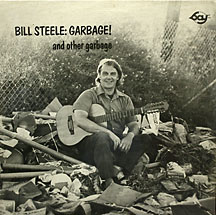
[1969]
Album “Garbage! and other garbage” (1972)
La quarta strofa fu scritta da Pete Seeger e Mike Agranoff.
Testo trovato su MySongBook
“A year before the first Earth Day observance on April 22, 1970 -- a nationwide environmental "teach-in" for 20 million participants -- folk musician Bill Steele '54 wrote one of the environmental movement's anthems: "Garbage!" Forty years on, the song still resonates as much as it did when Steele wrote it in San Francisco in 1969. "There was a big fuss in San Francisco at the time about dumping garbage in the bay, not as trash but as landfill to build new waterfront condominiums. So that sort of inspired it all," Steele says. […] The song has inspired several additional verses over the years, notably by Seeger and Mike Agranoff. Their 1977 addenda include a verse (beginning with "In Mister Thompson's factory, they're making plastic Christmas trees ...") and a new chorus, decrying the effects of corporations and capitalism.” (Fonte)
Album “Garbage! and other garbage” (1972)
La quarta strofa fu scritta da Pete Seeger e Mike Agranoff.
Testo trovato su MySongBook
“A year before the first Earth Day observance on April 22, 1970 -- a nationwide environmental "teach-in" for 20 million participants -- folk musician Bill Steele '54 wrote one of the environmental movement's anthems: "Garbage!" Forty years on, the song still resonates as much as it did when Steele wrote it in San Francisco in 1969. "There was a big fuss in San Francisco at the time about dumping garbage in the bay, not as trash but as landfill to build new waterfront condominiums. So that sort of inspired it all," Steele says. […] The song has inspired several additional verses over the years, notably by Seeger and Mike Agranoff. Their 1977 addenda include a verse (beginning with "In Mister Thompson's factory, they're making plastic Christmas trees ...") and a new chorus, decrying the effects of corporations and capitalism.” (Fonte)
Mister Thompson calls the waiter, orders steak and baked potatoes
(continuer)
(continuer)
envoyé par Alessandro 23/4/2010 - 10:51
Flowers Are Red
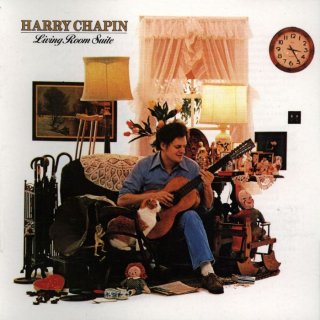
[1978]
Album “Living Room Suite”
“The idea for the song came to Chapin when his secretary told him about her son who brought his report card home from school one day. The teacher had written a note in the card saying: "Your son is marching to the beat of a different drummer, but don't worry we will soon have him joining the parade by the end of the term." The quote was often used as an introduction to the song during live performances, with the comma after "drummer" being pronounced as a word because of the educational theme.” (en.wikipedia)
Album “Living Room Suite”
“The idea for the song came to Chapin when his secretary told him about her son who brought his report card home from school one day. The teacher had written a note in the card saying: "Your son is marching to the beat of a different drummer, but don't worry we will soon have him joining the parade by the end of the term." The quote was often used as an introduction to the song during live performances, with the comma after "drummer" being pronounced as a word because of the educational theme.” (en.wikipedia)
The little boy went first day of school
(continuer)
(continuer)
envoyé par Alessandro 23/4/2010 - 10:00
Ballata per un ferroviere

qualcuno conosce gli accordi di questa canzone?...Grazie Riccardo!!!
22/4/2010 - 22:51
Μάνα μου Ελλάς

Tanto per...aggiungere qualche nota cinematografica, approfittando dell'unico giorno della settimana in cui, oramai, posso occuparmi del sito.
Il film Ρεμπέτικο (Rebetiko) fu girato da Kostas Ferris nel 1983, prodotto dallo Ελληνικό Κέντρο Κινηματογράφου (Centro Greco di Cinematografia); fu interpretato da Sotiria Leonardou, Nikos Kalogeropoulos, Themis Bazaka, Michalis Maniatis e dallo stesso cantante Nikos Dimitratos, che interpreta questa canzone nel corpo del film. Il regista Kostas Ferris è anche lo sceneggiatore del film.
Il film Ρεμπέτικο (Rebetiko) fu girato da Kostas Ferris nel 1983, prodotto dallo Ελληνικό Κέντρο Κινηματογράφου (Centro Greco di Cinematografia); fu interpretato da Sotiria Leonardou, Nikos Kalogeropoulos, Themis Bazaka, Michalis Maniatis e dallo stesso cantante Nikos Dimitratos, che interpreta questa canzone nel corpo del film. Il regista Kostas Ferris è anche lo sceneggiatore del film.
Riccardo Venturi 22/4/2010 - 16:04
Take The Children And Run

[1984]
Album “Home For A While”
Written by Don Lange
Una canzone sull’incidente che accadde nel 1979 nella centrale nucleare di Three Mile Island in Pennsylvania, vicino ad Harrisburg.
Si vedano al proposito anche The No Nuke Song,No More Three Mile Island e soprattutto All Clear in Harrisburg.
Album “Home For A While”
Written by Don Lange
Una canzone sull’incidente che accadde nel 1979 nella centrale nucleare di Three Mile Island in Pennsylvania, vicino ad Harrisburg.
Si vedano al proposito anche The No Nuke Song,No More Three Mile Island e soprattutto All Clear in Harrisburg.
Telephone rang, Have you heard the news
(continuer)
(continuer)
envoyé par Alessandro 22/4/2010 - 15:24
Parcours:
Contre le Nucléaire
Evacuation

[1988]
Album “Politics Live”
La centrale nucleare di Shoreham costò 6 miliardi di dollari e non entrò mai in funzione. Abbandonata nel 1989, si spesero oltre 200 milioni dollari per mettere l’impianto in sicurezza. Nel 2005 è stato convertito per la produzione di energia elettrica attraverso turbine a gas.
“This is one of the more recent songs. We have a nuclear power plant on Long Island which we've so far blocked from opening. It's a place called Shoreham, and it belongs to the Long Island Lighting Company, known as Lilco, which has assured us residents of Long Island that we need not fear any catastrophe, but if anything should go wrong not to worry because we'll all be evacuated from Long Island in utter safety and in perfect order, apparently. According to them, they had a test, and it worked ... So even though I felt immensely reassured, I still felt called upon to write a little song.” (Tom Paxton)
Si veda anche Got The Sun In The Morning And The Wind At Night
Album “Politics Live”
La centrale nucleare di Shoreham costò 6 miliardi di dollari e non entrò mai in funzione. Abbandonata nel 1989, si spesero oltre 200 milioni dollari per mettere l’impianto in sicurezza. Nel 2005 è stato convertito per la produzione di energia elettrica attraverso turbine a gas.
“This is one of the more recent songs. We have a nuclear power plant on Long Island which we've so far blocked from opening. It's a place called Shoreham, and it belongs to the Long Island Lighting Company, known as Lilco, which has assured us residents of Long Island that we need not fear any catastrophe, but if anything should go wrong not to worry because we'll all be evacuated from Long Island in utter safety and in perfect order, apparently. According to them, they had a test, and it worked ... So even though I felt immensely reassured, I still felt called upon to write a little song.” (Tom Paxton)
Si veda anche Got The Sun In The Morning And The Wind At Night
If you're doing up some cookies and the whistle starts to blow
(continuer)
(continuer)
envoyé par Alessandro 22/4/2010 - 15:06
Parcours:
Contre le Nucléaire
Lord, Mr. Ford

[1973]
Album “Dick Feller Wrote”
Also recorded by Jerry Reed and others.
Testo trovato su Mudcat Café
Leggo sui giornali di oggi e, in particolare – com’è ovvio – su La Stampa di Torino, titoli entusiastici come questi: “FIAT, la svolta si gioca su 51 modelli”… “Scommessa su un'Italia nuova”… “E' nata un'altra FIAT”… “FIAT: sindacati favorevoli”… “Il piano di Marchionne: 6 milioni di auto l’anno”… “Tra gli operai prevale l'ottimismo. La produzione può aumentare.”…
Ma dico, ma siamo tutti matti? direbbe il buon Ciampi…
Io che a Torino ci vivo e ci lavoro, e che ogni giorno rischio la vita in bici sulle sue strade intasate dal traffico, o rischio la salute a piedi per le sue strade ammorbate dai gas di scarico, o rischio la nevrosi tra le sue strade trasformate in una sorta di rodeo selvaggio di creature d’acciaio… io mi domando e dico: “Ma dove spacchio di cazzo di minchia ce le vogliono... (continuer)
Album “Dick Feller Wrote”
Also recorded by Jerry Reed and others.
Testo trovato su Mudcat Café
Leggo sui giornali di oggi e, in particolare – com’è ovvio – su La Stampa di Torino, titoli entusiastici come questi: “FIAT, la svolta si gioca su 51 modelli”… “Scommessa su un'Italia nuova”… “E' nata un'altra FIAT”… “FIAT: sindacati favorevoli”… “Il piano di Marchionne: 6 milioni di auto l’anno”… “Tra gli operai prevale l'ottimismo. La produzione può aumentare.”…
Ma dico, ma siamo tutti matti? direbbe il buon Ciampi…
Io che a Torino ci vivo e ci lavoro, e che ogni giorno rischio la vita in bici sulle sue strade intasate dal traffico, o rischio la salute a piedi per le sue strade ammorbate dai gas di scarico, o rischio la nevrosi tra le sue strade trasformate in una sorta di rodeo selvaggio di creature d’acciaio… io mi domando e dico: “Ma dove spacchio di cazzo di minchia ce le vogliono... (continuer)
Now, I'm not a man to point or judge,
(continuer)
(continuer)
envoyé par Alessandro 22/4/2010 - 14:36
A li matri di li carusi
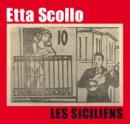
Version française – LES CARUSI – Marco Valdo M.I.– 2010
Tirée de la version italienne d'une chanson sicilienne « A li matri di li carusi » de Ignazio Buttitta, une musique d' Etta Scollo
Superbe chanson, comme tu vas voir, mon ami Lucien l'âne, à propos des jeunes « carusi », des jeunes gens qu'on exploitait dans les soufrières. Ceux qui s'ils ne finissaient pas rapidement écrasés sous les éboulements ou les effondrements, ne tardaient pas à voir brûler leurs poumons sous l'effet du soufre. Soufre, souffre, souffrance, soufrière, souffrière, souffrir, étouffer, mourir.
C'est tout-à-fait atroce, dit Lucien l'âne ne baissant la tête et les oreilles. Nous aussi les ânes, on nous a fait subir des sorts semblables. Mais pour des êtres vivants, c'est hallucinant, c'est insupportable. Ce monde est imbécile, méchant, sadique et avide. Tout çà pour faire du fric... Tout çà pour enrichir des... (continuer)
Tirée de la version italienne d'une chanson sicilienne « A li matri di li carusi » de Ignazio Buttitta, une musique d' Etta Scollo
Superbe chanson, comme tu vas voir, mon ami Lucien l'âne, à propos des jeunes « carusi », des jeunes gens qu'on exploitait dans les soufrières. Ceux qui s'ils ne finissaient pas rapidement écrasés sous les éboulements ou les effondrements, ne tardaient pas à voir brûler leurs poumons sous l'effet du soufre. Soufre, souffre, souffrance, soufrière, souffrière, souffrir, étouffer, mourir.
C'est tout-à-fait atroce, dit Lucien l'âne ne baissant la tête et les oreilles. Nous aussi les ânes, on nous a fait subir des sorts semblables. Mais pour des êtres vivants, c'est hallucinant, c'est insupportable. Ce monde est imbécile, méchant, sadique et avide. Tout çà pour faire du fric... Tout çà pour enrichir des... (continuer)
LES CARUSI
(continuer)
(continuer)
envoyé par Marco Valdo M.I. 22/4/2010 - 14:00
Dark As A Dungeon
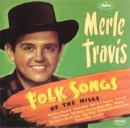
Additional stanza rarely performed by Merle Travis:
The midnight, the morning, or the middle of day,
(continuer)
(continuer)
envoyé par giorgio 22/4/2010 - 08:49
Turn The Boat Around
Our leader landed on the deck dressed in his soldier suit,
(continuer)
(continuer)
envoyé par Alessandro 22/4/2010 - 08:43
Seeds of Peace
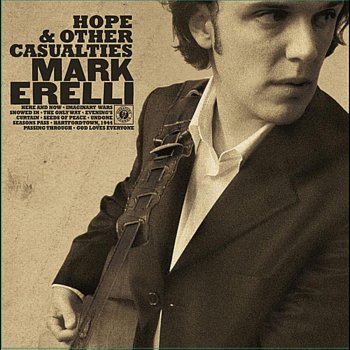
[2006]
Album “Hope & Other Casualties”
Album “Hope & Other Casualties”
The American flag is tied to a fence on an overpass
(continuer)
(continuer)
envoyé par Alessandro 22/4/2010 - 08:13
Bella Ciao
anonyme

A MOGLIANO VENETO IL SINDACO LEGHISTA VUOLE "LA CANZONE DEL PIAVE" AL POSTO DI "BELLA CIAO" - (Adnkronos-21-04-10) - "Il 25 aprile si festeggia la Liberazione: cosa centra la pur bella e importante 'Canzone del Piave'? Il sindaco di Mogliano Veneto, evidentemente, fa volutamente, confusione storica e politica, dal momento che i fatti che ispirarono la 'Canzone del Piave' risalgono al 1918, allorche' l'Austria-Ungheria decise di muovere un grosso attacco all'esercito italiano, nell'intento di piegarlo definitivamente, dopo la sconfitta di Caporett; mentre 'Bella Ciao' e' il canto popolare italiano che piu' ricorda la Resistenza, la lotta al nazi-fascismo e, quindi, il 25 aprile del 1945, giorno in cui i partigiani liberarono il Nord-Italia dall'occupazione". E' quanto afferma Alessandro Pignatiello, coordinatore della segreteria nazionale della Federazione della Sinistra. "Ricordare il 25... (continuer)
gianfranco.ginestri@alice.it 21/4/2010 - 22:32
Nessuna razza
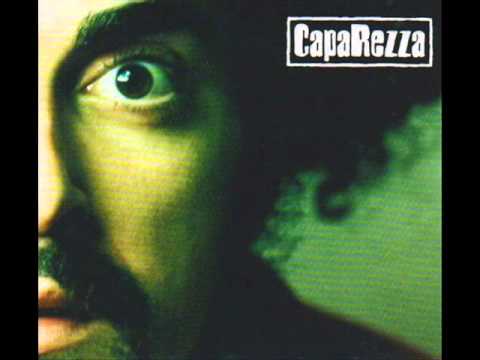
2003
Verità supposte
Verità supposte
Io sono spazzatura
(continuer)
(continuer)
envoyé par DonQuijote82 21/4/2010 - 17:11
Vengo dalla luna
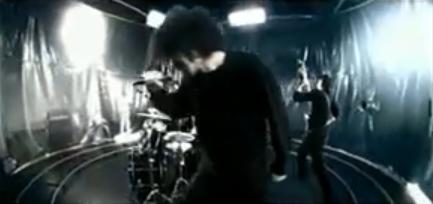
Dall'album Verità Supposte del 2003
Io vengo dalla Luna
(continuer)
(continuer)
envoyé par DonQuijote82 21/4/2010 - 17:07
Parcours:
Histoires de l'Espace Profond
×
![]()






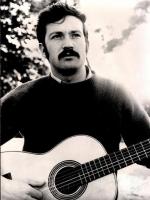


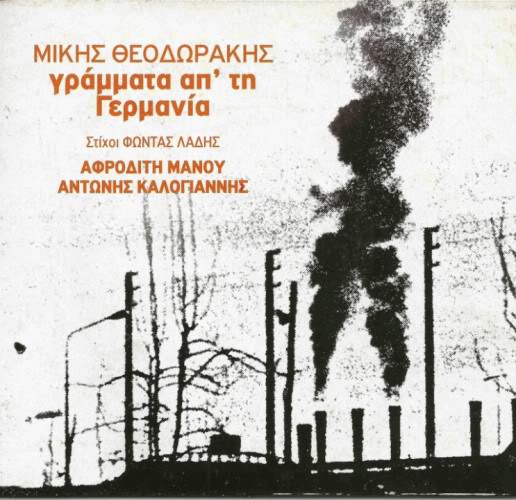
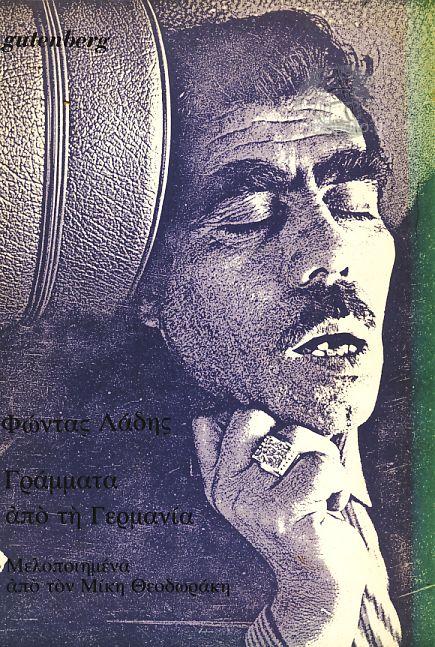

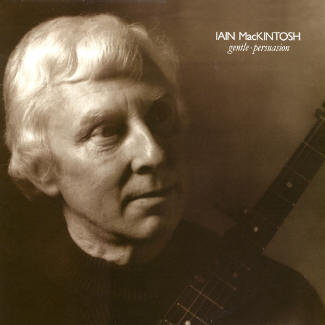
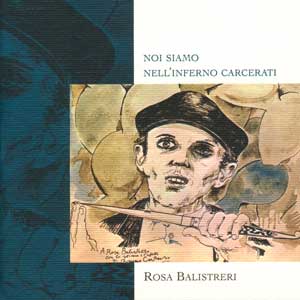
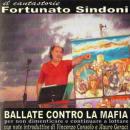
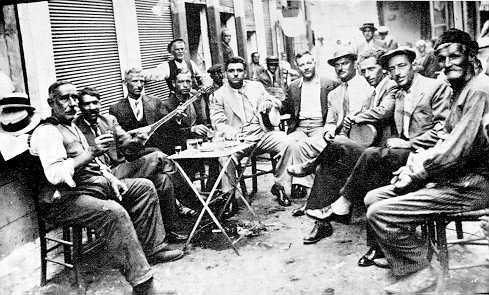



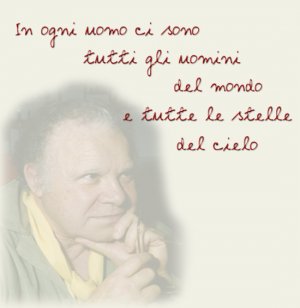
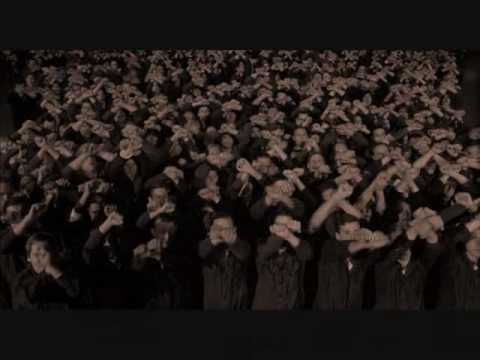
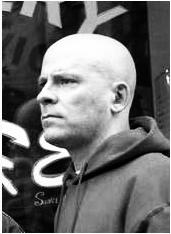
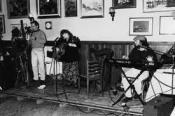
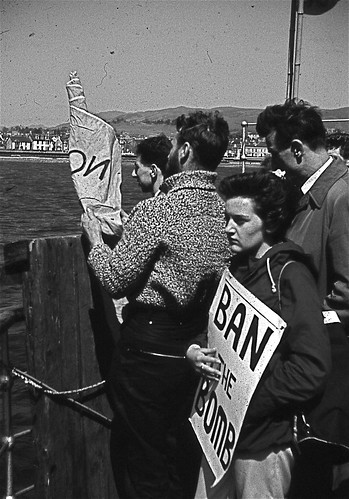
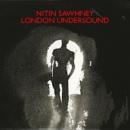
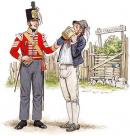
“To the tune of a Kentucky song about The Cuckoo, one of the widest-spread folk songs, also very well known in Britain, Ewan MacColl put some words about a different bird as a symbol of peace.”
(MySongBook)
Canzone interpretata anche da Hamish Imlach, The Ian Campbell Folk Group, Leon Rosselson e Judy Collins.